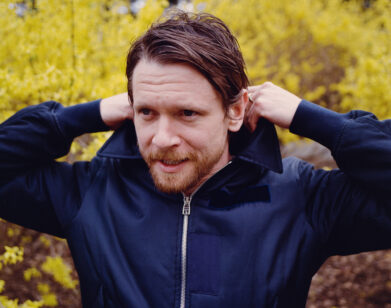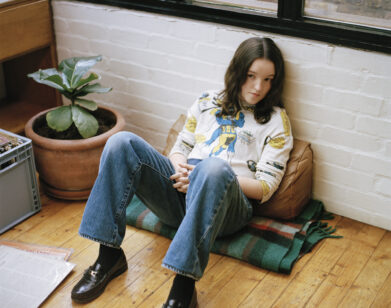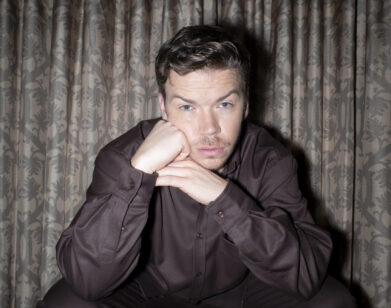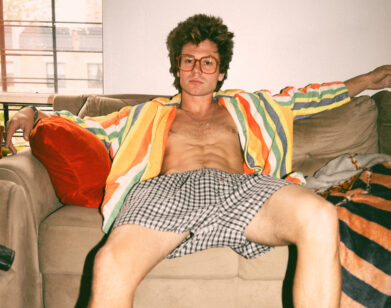William Monahan’s Thriller Instincts
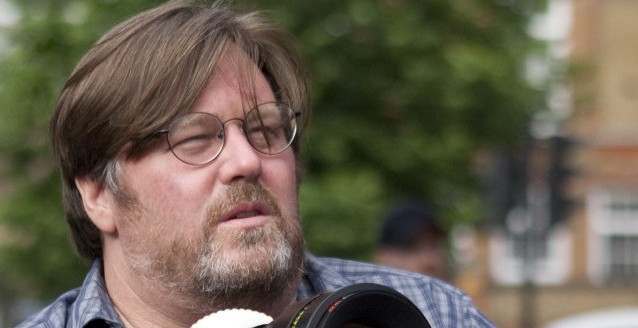
Sleek suits, fancy cars, tough talk, and brutal violence: this is London Boulevard. Directed by Academy Award-winning screenwriter William Monahan (The Departed), the stylish drama is a throwback and homage to the different classic eras of British crime film. Colin Farrell stars as Mitchell, recently free after a three-year stint behind bars and not looking forward to jumping back into the underworld. He lands the position of groundskeeper and bodyguard to Charlotte (Keira Knightley), a reclusive actress, and as their bond grows tighter and they plan to run away together, Mitchell falls into the lap of crime boss Gant (Ray Winstone), who wants him to stick around for good.
Interview spoke with Monahan about the film’s influences, video on demand, and a few upcoming projects.
CRAIG HUBERT: How did London Boulevard originate?
WILLIAM MONAHAN: Quentin Curtis [producer] and I came across the book, London Boulevard, which is a very entertaining pastiche of the Sunset Boulevard story, by Ken Bruen. It was a terrific book in itself, and I saw a couple of ways one could update the so-called classic story.
HUBERT: Was there something specifically interesting to you about British crime?
MONAHAN: I kind of grew up on British crime films. The British New Wave, and all the great crime films, and all the great films in general.
HUBERT: Like Get Carter (1971)?
MONAHAN: Yeah, all those films hit America through the medium of television when I was about 18, 19 years old, or something. That’s what you’d do, you would watch these great British films on UHF channels. I sort of noticed that they were really doing it right in ways at the time we seemed to be doing it really wrong.
HUBERT: When I saw the film, the first thing I thought of, especially because of the music, was Blow Up. You have the Yardbirds in there, The Box Tops, The Pretty Things, all these great groups.
MONAHAN: Yeah, it was great fun doing the soundtrack. It could have been one of the best parts of the whole process, because you love to see laying over picture. Aesthetically, the film was conceived to take place in an amorphous time period between, say, 1963 and now. Basically take everything in fashion that has worked between ‘63 and now. You can it to be from the time men stopped wearing hats until they started wearing them in restaurants like douches. [laughs] I figured that was the sartorial setting, anyway. But, you know, you mentioned Antonioni. He was one of the guys I was looking at—I have Mitch driving the same Silver Cloud as was driven in Blow Up by David Hemmings.
HUBERT: This is the first film you’ve directed. You started out as a novelist, and now you’re a successful screenwriter. Was directing something you always wanted to do?
MONAHAN: It was something I always wanted to do. I think in my 20s, and earlier 30s, I wasn’t exactly sure what I wanted to do—film or prose. I went back and forth a bit, until I finally decided it was going to be film.
HUBERT: We talked a little bit about the British New Wave, but as a writer, you’ve worked with some well-known directors over the years. Did you pick up anything from those guys?
MONAHAN: You pick up a lot. You never want to cop anything from anybody, but I think mainly its a matter of watching them work with the actors and work on the floor. Martin Scorsese was very generous with me about having me work with the actors—you know, we’d do table readings and things like that. I kind of picked up on that way of doing things from him. Ridley Scott, of course, I worked with quite a long time. Watching Ridley prep and shoot is like watching a master do it, there’s no wasted time, there’s no wasted effort, there’s no wasted money. The art kind of takes care of itself, what you got to mind are the practicalities and the logistics, because that is a huge part of it.
HUBERT: There’s so many great actors in the film. Let’s start with Colin Farrell—what made you think of him for the role of Mitchell, and what was that process like?
MONAHAN: I went down to meet him at the Roosevelt Hotel, and the minute I met him, he just reaffirmed what I already knew, that he was Mitch. He has a combination of toughness and sensitivity, which was really important to the role because I also intended to do something a little subversive in England, which is, I was not going to have Mitch be a Diamond Geezer in a shell suit, you know, completely inarticulate and vomiting on his shoes because a posh woman was interested in him. I wasn’t going to ratify British class illusions. So, Colin has vast poetic intelligence, and he’s also a tough guy and very charismatic. I think he’s got the presence of any of the ten best film stars we can mention.
HUBERT: I was also surprised by Ben Chaplin, who I really only know through the Terrence Malick films he has been in.
MONAHAN: He’s outstanding, isn’t he? I told you how the film picks its period, like one character will seem to come out of one particular period—and Ben Chaplin is very definitely coming out of the ’70s.
HUBERT: The film was released a year ago in England, and now being released here, in theaters and on video on demand service. What are your thoughts on this type of release strategy?
MONAHAN: I’ve got nothing to do with the release schedules or anything else. You know, we hit the date in England, and Graham [King, producer] was in the process of forming a distribution company in the United States. So, you know, that’s all it is. They had The Rum Diary in the can a long time ago, too.
HUBERT: I was curious: does the theatrical experience, as opposed to watching it on your television, mean much to you as a filmmaker?
MONAHAN: Well, you’ve got to look at it two ways. The first way, VOD is the way things are going to happen in the future, and it’s better to have the future now if you’re going to have it at all. I’m in the film industry, and I very seldom go to the theater now. It could be work, not being in New York, that sort thing—because in New York, you do go to theaters; you can walk to a theater and then walk to a restaurant. But in places you have to drive out to the cineplex to see a movie, it’s starting not to be worth it anymore. It’s like the days when you went to get a book at the public library. You don’t have to do that anymore. You just go on your iPad and all of a sudden you’re reading The Duchess of Malfi.
HUBERT: To wrap up, I wanted to ask you about a few upcoming projects. Just type your name into Google, and there seem to be an unlimited amount of projects with your name attached. So what is actually happening? What are you working on now?
MONAHAN: Well, what I intend to do next is a film called Mojave, which I want to shoot in the spring this year. It’s an original thriller. I think I’ll do that. But there’s a hell of a lot of other stuff—you know, remember, when you look online, look at what people put out what I’m doing, some of those things were already done, some of them never happened, some of them were just announcements, that sort of thing. I’m pretty busy. I’ve actually conceived a couple of television series, and I’m just taking on board, now, what sort of work is involved, and actually going through with these. Really just trying to plan how to fit work into the way I want to live, because I’ve had a really brutal 12 years. [laughs]
HUBERT: One of the most recent projects I read about was a remake of The Gambler, with Martin Scorsese.
MONAHAN: Yeah, that’s my present job. That’s what I’m writing now.
HUBERT: I’m a big fan of the original. What is your take on the original going to be like?
MONAHAN: If you weren’t a journalist, I’d tell you. [laughs] I’m sixty pages in, and enjoying the hell out of it.
LONDON BOULEVARD IS OUT NOVEMBER 11 IN LIMITED RELEASE, AND IS AVAILABLE NOW ON VIDEO ON DEMAND.

